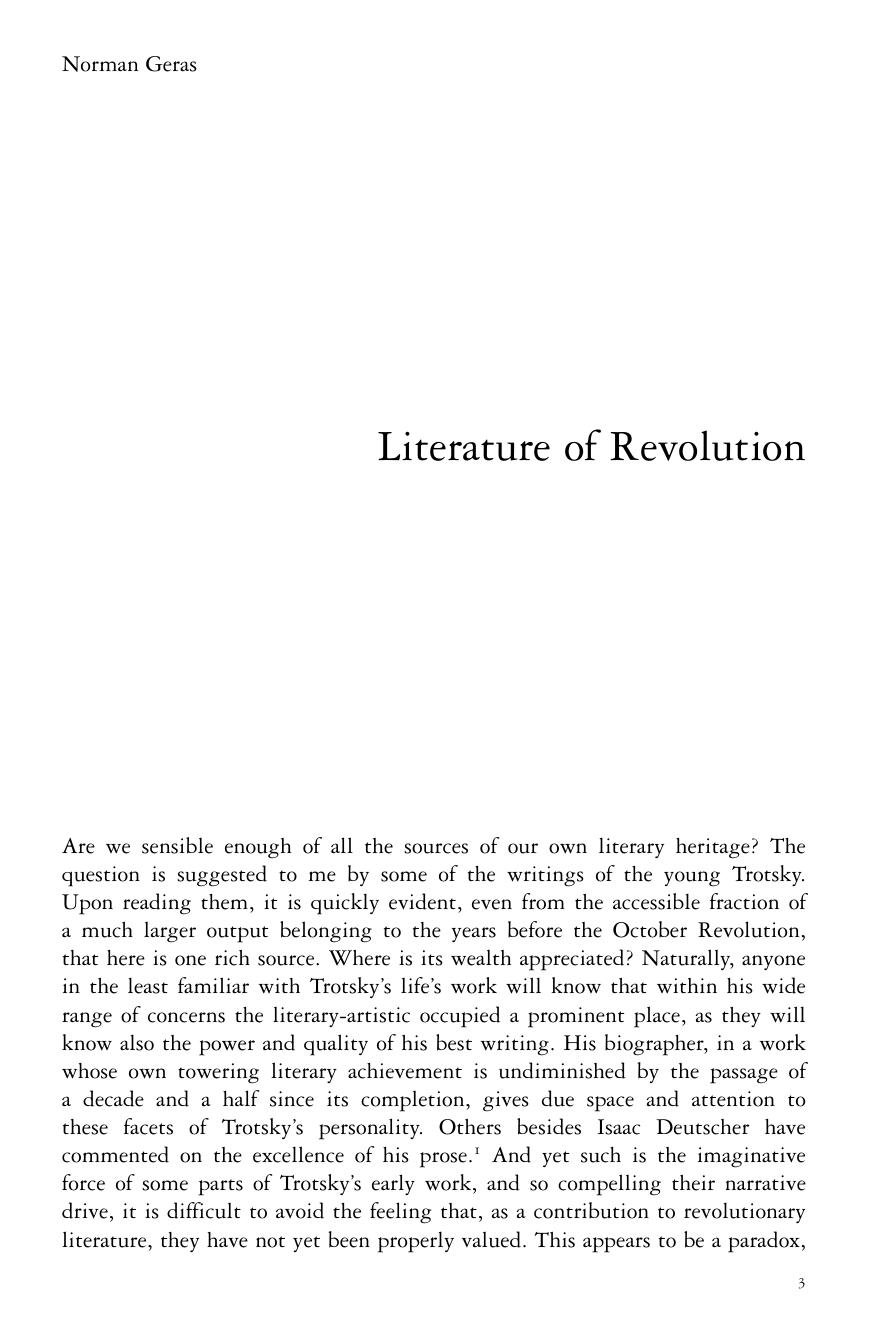Literature of Revolution by Norman Geras

Author:Norman Geras
Language: eng
Format: epub, pdf
Publisher: Verso Books
8.
Rosa Luxemburg1
1982
The youngest of five children in a fairly well-to-do and cultured middle-class Jewish family, Rosa Luxemburg grew up in Warsaw. She was an intelligent and academically successful girl of independent spirit and, rebelling against the restrictive regime then prevalent in the schools of Russian Poland, she became involved in socialist political activity from early youth. In 1889 she had in consequence to leave Poland to avoid arrest and went to Zurich. Here she enrolled in the university, studying first mathematics and natural sciences, then political economy; and at length completed a doctoral dissertation on Poland’s industrial development. Active at the same time in the political life of the revolutionary émigrés from the Russian Empire and opposing the nationalism of the Polish Socialist Party, in 1894 she took the lead with Leo Jogiches, a comrade similarly engaged, in creating the Social Democracy of the Kingdom of Poland: he was its main organizer, she its ablest intellect and voice. The two of them had formed what was to be a long and intense relationship, the close political tie between them surviving a later personal estrangement. In 1896, wanting a wider political stage for her energies, Rosa Luxemburg moved to Germany.
Henceforth she was prominent in the important debates within European socialism. She made her mark at once during the revisionist controversy with her Social Reform or Revolution, still perhaps the best general Marxist riposte to reformism. While capitalism endured, she contended, its crises and contradictions could not be subdued and to suggest otherwise, as Bernstein had, was to cut the very heart out of Marxism, denying the objective foundations of the socialist project and turning it into an abstract ethical utopia. The workers’ movement had indeed to struggle for reforms through trade union and parliamentary activity. But as these would never suffice to abolish capitalist relations of production, it must not lose sight of its ultimate goal: the conquest of power for revolution. In 1904, in Organizational Questions of Russian Social Democracy, Luxemburg intervened in the dispute between Lenin and the Mensheviks, criticizing the former for his conception of a tightly centralized vanguard party; an attempt, as she saw it, to play guardian to the working class. Her themes here—characteristic of all her work—were the independent initiative, the self-activity, of the workers, their capacity to learn through their own experience and their own mistakes, the need accordingly for a broadly based democratic organization. She had other disagreements with Lenin in these years. Although she deplored national as every other kind of oppression, she did not support, as he did, either the independence of Poland or, more generally, the slogan of a right of nations to self-determination.
However, their common response to the 1905 revolution drew them closer; they both envisaged for Russia a bourgeois revolution, to be carried through under the leadership, and by the methods of struggle, of the proletariat. In the mass actions of the Russian workers Luxemburg thought to have discovered, in addition, a strategic idea of international relevance and
Download
This site does not store any files on its server. We only index and link to content provided by other sites. Please contact the content providers to delete copyright contents if any and email us, we'll remove relevant links or contents immediately.
| Anarchism | Communism & Socialism |
| Conservatism & Liberalism | Democracy |
| Fascism | Libertarianism |
| Nationalism | Radicalism |
| Utopian |
The Secret History by Donna Tartt(19085)
The Social Justice Warrior Handbook by Lisa De Pasquale(12190)
Thirteen Reasons Why by Jay Asher(8909)
This Is How You Lose Her by Junot Diaz(6885)
Weapons of Math Destruction by Cathy O'Neil(6279)
Zero to One by Peter Thiel(5801)
Beartown by Fredrik Backman(5751)
The Myth of the Strong Leader by Archie Brown(5507)
The Fire Next Time by James Baldwin(5442)
How Democracies Die by Steven Levitsky & Daniel Ziblatt(5218)
Promise Me, Dad by Joe Biden(5153)
Stone's Rules by Roger Stone(5087)
A Higher Loyalty: Truth, Lies, and Leadership by James Comey(4960)
100 Deadly Skills by Clint Emerson(4924)
Rise and Kill First by Ronen Bergman(4788)
Secrecy World by Jake Bernstein(4752)
The David Icke Guide to the Global Conspiracy (and how to end it) by David Icke(4717)
The Farm by Tom Rob Smith(4507)
The Doomsday Machine by Daniel Ellsberg(4490)
